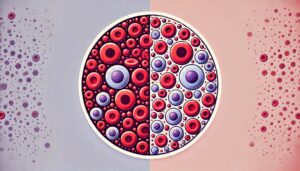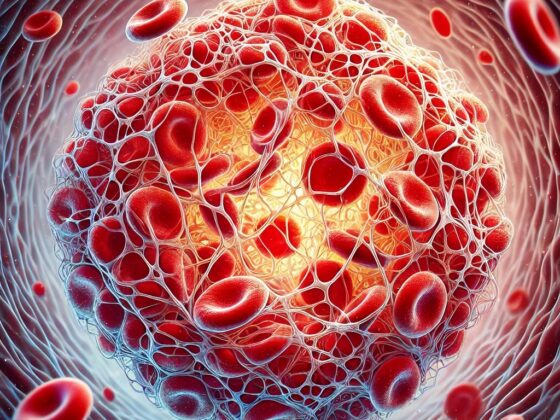Hematology is a specialized branch of medicine that focuses on the study of blood, blood-forming organs, and blood diseases. It encompasses various aspects such as the physiology of blood cell, the mechanisms of blood clotting and the underlying causes of blood-related disorders
Hematologists play a crucial role in diagnosing, treating, and managing a wide range of blood disorders. Advancements in hematology have significantly enhanced our understanding and ability to diagnose and treat these conditions. This improves patient outcomes and quality of life.
What Are Blood Disorders?
Blood disorders are conditions that affect the components and functions of the blood. This includes red blood cells, white blood cells, platelets, and plasma. These disorders can lead to various health problems, ranging from mild to life-threatening. Blood disorders can be inherited or acquired, and they may result from abnormalities in blood cell production, structure, or function. The symptoms of blood disorders vary widely depending on the specific condition but often include fatigue, weakness, shortness of breath, abnormal bleeding or bruising, and an increased risk of infections.
Common Blood Disorders
There are numerous blood disorders, each with unique characteristics and challenges. Some of the most common blood disorders include:
Anemia: This is a condition characterized by a deficiency of red blood cells or hemoglobin, leading to reduced oxygen transport in the body. Common types of anemia include iron-deficiency anemia, vitamin B12 deficiency anemia, and hemolytic anemia.
Leukemia: A type of cancer that affects the blood and bone marrow, leading to the production of abnormal white blood cells. Leukemia can be acute or chronic and is classified into different types such as acute lymphoblastic leukemia and chronic myeloid leukemia.

Lymphoma: Another form of blood cancer that originates in the lymphatic system. The two main types are Hodgkin lymphoma and non-Hodgkin lymphoma.
Hemophilia: A genetic disorder that impairs the blood’s ability to clot properly, leading to excessive bleeding even from minor injuries. Hemophilia is categorized into types A, B, and C based on the specific clotting factor that is deficient.
Enhancing Diagnosis and Treatment Through Hematology
The field of hematology plays a pivotal role in enhancing the diagnosis and treatment of blood disorders. Through various diagnostic techniques and treatments, hematologists can provide accurate diagnoses and develop effective treatment plans tailored to individual patients. Some key advancements in hematology that have improved the diagnosis and treatment of blood disorders include:
Advanced Diagnostic Techniques: Modern hematology utilizes a range of sophisticated diagnostic tools to identify blood disorders accurately. These include complete blood count (CBC) tests, bone marrow biopsies, flow cytometry, and genetic testing. These techniques help in detecting abnormalities in blood cells, identifying genetic mutations, and determining the severity and type of blood disorders.
Targeted Therapies: Hematologists have developed targeted therapies that specifically attack abnormal cells without harming healthy ones. For example, in the treatment of leukemia, targeted therapies like tyrosine kinase inhibitors have revolutionized patient outcomes by inhibiting specific proteins that promote cancer cell growth.
Stem Cell Transplantation: Also known as bone marrow transplantation, this procedure replaces damaged or diseased bone marrow with healthy stem cells. It is a potential cure for various blood cancers and severe blood disorders like aplastic anemia and certain types of leukemia.
Gene Therapy: Recent advancements in gene therapy offer promising treatment options for genetic blood disorders. By correcting or replacing defective genes, this therapy aims to treat or potentially cure conditions like hemophilia and sickle cell anemia.
Comprehensive Care Models: Hematologists often work within multidisciplinary teams that include oncologists, pathologists, and other specialists to provide comprehensive care for patients with blood disorders. This collaborative approach ensures that patients receive holistic treatment that addresses all aspects of their condition.
Conclusion
Hematology is a critical field in modern medicine that significantly contributes to the diagnosis and treatment of blood disorders. Through advanced diagnostic techniques, targeted therapies, stem cell transplantation, and gene therapy, hematologists can effectively manage and treat a wide range of blood disorders. As research and technology continue to advance, the role of hematology will only become more integral in improving patient outcomes and enhancing the quality of life for those affected by blood disorders.


